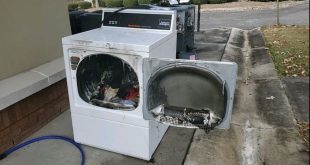A bill introduced this week in the Georgia Senate would give Georgia cities and counties the authority to allow liquor, beer and wine sales on Sundays. There were mixed reactions to the bill in the VSU community.
Supporters of Sunday liquor sales feel the bill has a good chance of passing the Georgia legislature now that Gov. Nathan Deal has taken office. The previous governor, Sonny Perdue, was an opponent of the initiative.
At VSU, some people feel that, if passed, the bill would have little impact.
“I don’t personally think it will affect students’ drinking habits,” said Cpo. Matt Rudisail of the VSU Police Department. “The number of alcohol-related crimes on campus will not change in my eyes because a spike in sales probably won’t happen.”
Some students feel the same way.
“If people are going to drink, they’re going to find a way to drink regardless,” said Kiara Burke, a sophomore early childhood education major.
Burke believes the law could also lead to more police activity.
“Cops are already bad when it comes to patrolling on the weekends, but it may get worse on Sunday,” she said.
Some students believe Sunday sales will bring more business to Valdosta liquor stores, but will also take away from local bars.
“I believe alcohol sales will go up dramatically,” said Justin Whitfield, a junior business management major. “Bars are going to see a lot less people because it would be more cost effective to drink at home.”
Different organizations throughout the state are strongly opposed to the bill.
Jerry Luquire, president of the Georgia Christian Coalition, voiced his frustration to the Atlanta Journal-Constitution earlier this week.
“We should have one day when people don’t have to buy alcoholic products,” Luquire said.
Others think that it is a bad idea altogether, for personal reasons.
“I think it sucks,” said Chris, a local attendant at Five Points Liquor who did not provide his last name. “I don’t want to work on Sundays.”
 The Spectator The independent student newspaper of Valdosta State University
The Spectator The independent student newspaper of Valdosta State University






The impact could vary depending on public reaction. If the rather apathetic view of the students interviewed for the article are an accurate representation of the drinking population of Valdosta, then it would probably be more harm than benefit economically. Consider that businesses that serve alcohol generally have to pay employees hourly wages. One more day of operation adds an entire day’s worth of business taxes and labor to the company. If the drinking population of Valdosta does not increase its alcohol consumption but rather spreads the business to another day, the businesses that offer the product take a hit. More money out in taxes and labor, same money in, less real income.
If the amount of alcohol sales increase, realistically nothing would change. But based on my own personal observations of those who drink (and most human beings for that matter) are creatures of habit, and will change very little concerning their drinking habits. Thus, while I don’t oppose this on any moral standpoint (not that I support drinking, I simply see no difference that the bill would make on the current situation. It’s not really an encouragement to drink), I do have issues with it from an economical standpoint. The only foreseeable benefit will be the tax dollars that are collected more than previously, but the amount would not be significant enough (and seldom does the government use money effectively) to change the adverse effect of this downturn I foresee in the economy.